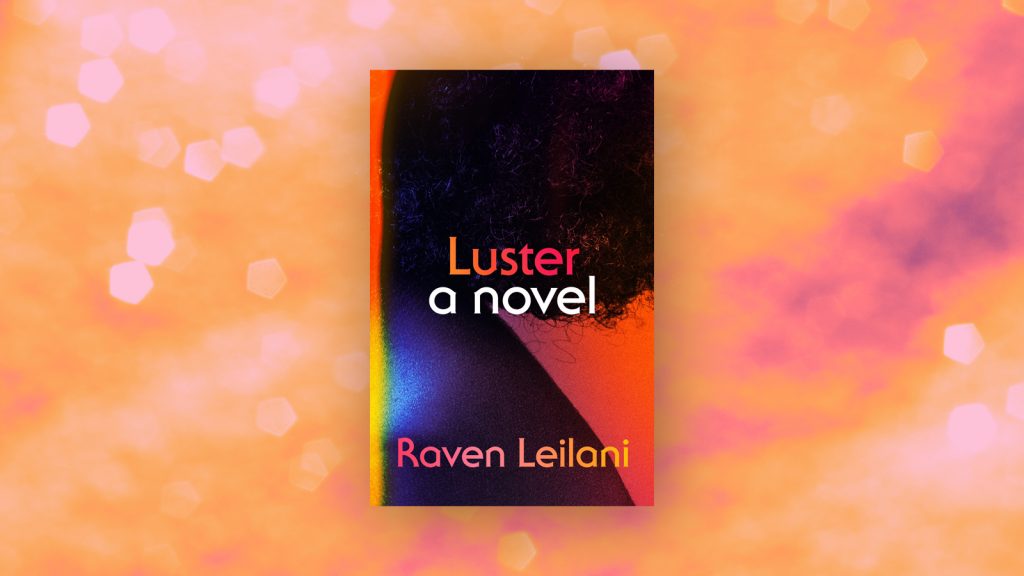Raven Leilani’s debut Luster is a novel about seeing. Edie, the 23-year-old protagonist, is a keen observer, armed with wit and a sharp, discerning gaze. Hers is an eye that cuts through exploitive structures because hers is a world that requires constant vigilance. As Edie evicts a “distressed, balding” mouse from her apartment, she sees a “fat calico” across the street and thinks “about how little the mouse wants,” how she and the creature are “in it together.” Meanwhile, in the human side of New York, rent is going up for mice-infested apartments, and Edie is an uncertain artist, underpaid at her day job, living with chronic illness and no health insurance. Edie is not here to make you comfortable. One of two Black women in her publishing department, she is fired officially for office promiscuity, unofficially because she is “not lovely.” A foil to Aria, the other Black woman, Edie can’t seem to play the game of tokenism, that “unthreatening aw-shucks shtick for all the white professionals.” An artist without a support network, she is struggling to eat and does not have the stability she needs to create a self-portrait. She scrambles for stable footing in life, and the world offers scraps. At the end of the day, Edie just wants to be seen. “And so when we are alone,” Edie says of Aria, “even as we look at each other through borrowed faces, I see her hunger, and she sees mine.” Edie knows what she deserves—she has put in the work and then some. But expectations in Luster, as in life, are often precursors to defeat. That doesn’t make the hope any less valid, any less urgent, and necessary. Along comes Eric, an older man looking for a change in the monotony of his white, liberal routine in suburbia. He does not take the subway and cannot relate to poverty. He tours her mouse-infested apartment, feeds her to satiate his savior complex, and look, his wife has written a letter on how these dates should go. Rules are for breaking though, because soon enough, Edie is evicted and living in Jersey with Eric and his family. Rebecca, Eric’s wife, is introduced as “the amorphous specter with no distinct social media presence.” Portrayed as a flawless beauty, Rebecca has some surprises for Edie, who accompanies her lover’s wife to work, where Edie watches Rebecca cleave chests open to evaluate the hearts of the dead. At a party where her credentials are politely requested, Edie spots a “black child in a pink wig and a tummy shirt, smoking a candy cigarette.” The child is the couple’s daughter Akila, who is 12, going on 13. Naturally, Edie saves Akila’s hair and calls out the girl’s racist tutor. Edie helps Akila prepare a costume for comic con, and she tries to help Akila navigate the precarious state of Blackness. Meanwhile, Rebecca searches for a mirror in Edie. When Rebecca does not find what she is looking for, she remarks upon Edie’s non-specificity as a member of her “generation” and tells Edie, “This isn’t serving me anymore.” Eric and Rebecca certainly love reminding the younger woman of her “generation.” This fetishization of youth diminishes the particulars of Edie’s experience. It does not take any time to look, let alone see, the losses Edie has suffered, the weary bends in her body. When she says, “You should be grateful. . . you have all the time in the world,” Rebecca further reveals her narcissism, tone-deaf in her assessment of Edie’s years. Who gets to be “young,” the type of young characteristic of whiteness and affluence, the type of young that assumes it has “all the time in the world”? Perhaps this was Rebecca’s experience of youth. The novel confronts the erasure inherent in the white gaze. While Edie keeps her gaze firm on the present, unsuspecting exchanges trigger a traumatic past. As the jaunty, clever prose insists on the persistent present, Leilani delivers her protagonist’s heavy history in the breaks Edie can afford. In a summer of “take solace in your art” while you are unemployed, and the rent is climbing, reading Luster is an act of seeing and being seen. Luster also transports us to a time of in-person dates, crowded parks, office hookups, and comic con, where happy Black families celebrating nerd culture are at once an inspiring picture of Black joy and a painful reminder of what Edie has never had. Raven Leilani effortlessly weaves in gems for an audience that sees Edie as she wants to be seen, an audience that understands how to laugh in the thick of despair. “. . . if you need a pick me up,” Edie tells this reader, “I welcome you to make a white man your bitch.” Edie’s agency sparks in these lines, where humor is tinged with rage, frustration, and all that is unnamed in desire. Reading Luster can feel like much-needed catharsis. But cathartic reading is useless if we do not recognize that Black women deserve to be adequately compensated for their emotional labor. For all her knowledge of intersectional feminism, Rebecca fails to acknowledge this, “paying” Edie in intermittent efforts at solidarity and sporadic micro payments slipped under the door. Scraps. Luster is a novel about seeing. And still, it is so much more: timeless and witty and brutally honest. It’s about loneliness and living adjacent to violence. It’s about finding yourself in places you would prefer not to be and making the best of it, not unlike a dog in a SoHo nightclub “chewing someone’s silk slipper.” It’s about grief and desire and failure. It’s about the need for faith and the loss of faith. “God is not for women,” Edie reflects after another bout of loss. “He is for the fruit. He makes you want, and he makes you wicked, and while you sleep, he plants a seed in your womb that will be born just to die.” We could (and absolutely should) go on and on about this dazzling, masterful novel. Because Raven Leilani is in a league of her own.




